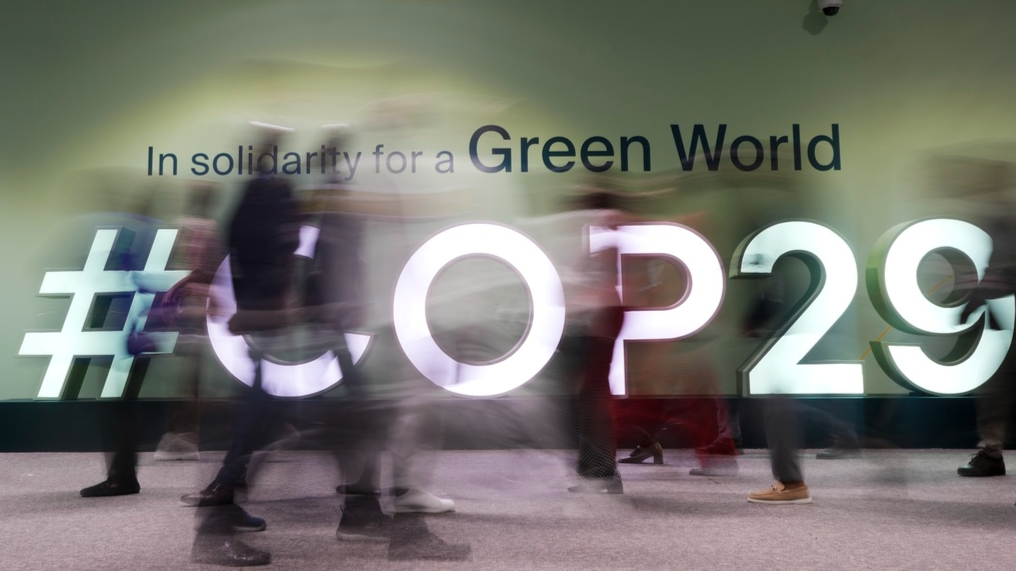
Asia needs collective and sustainable action to meet its climate finance needs, experts say, as negotiations are underway at COP29 for setting a new global financing target to support climate change mitigation and adaptation.
“The fight against climate change is going to be won or lost in Asia,” said Gulshan Vashistha, a climate change and sustainable finance expert based in Seoul.
As Asia has a high potential to address both mitigation and adaptation needs, the key areas that needs funding in the region’s climate transition include renewable and clean energy as countries needs to look at adaptation and resilience in a stronger manner, Vashistha told China Daily, adding that innovative financing mechanism is also important.
READ MORE: ADB: Climate change could cut GDP in developing Asia-Pacific
As representatives of countries from around the world have gathered at the 29th session of the Conference of the Parties to the United Nations Framework Convention on Climate Change in Baku, the draft text for the New Collective Quantified Goal (NCQG), one of the main deliverables of the meeting, was published as a workable basis for discussion on a new climate finance goal.
COP29 is also called the “climate finance COP”. The draft came as the previous annual financing goal of $100 billion will expire in 2025.
An independent high-level expert group said in a report on Nov 14 that the target annual figure would need to rise to at least $1.3 trillion a year by 2035.
Simon Stiell, executive secretary of the UN Framework Convention on Climate Change, said at COP29 that setting an ambitious new climate finance target is crucial for the well-being of all nations.
“Asia is lining up in a big way on sustainable finance, which is issuing green bonds and issuing sustainability bonds and social bonds,” said Vashistha, the sustainable finance expert in Seoul, pointing out that areas such as urban planning and sustainable transportation also require collective action.
Noting that countries at COP29 also endorsed the global carbon market framework, a key step towards launching a UN-back mechanism that will allow countries to trade on carbon credits to realize their climate goals, Vashistha said such mechanisms will be key to bridging the gap between investments and quality climate projects.
The endorsed standards are a significant advancement that will boost transparency and accountability to attract investor confidence, Farhad Taghizadeh-Hesary, associate professor of economics and finance at Tokai University in Tokyo, told China Daily.
“Establishing both an international carbon market and a global carbon taxation system is essential for achieving net-zero emissions,” said Taghizadeh-Hesary, who is also chief economist of Hong Kong-based sustainable finance consultancy Climate Finance Asia.
Collective action is critical for Asia amid the immense financial resources required, given the transnational nature of climate change impacts, said Taghizadeh-Hesary.
The impacts of climate change could reduce GDP in developing Asia and the Pacific by 17 percent by 2070 under a high-end greenhouse gas emissions scenario, according to a report by the Asian Development Bank.
READ MORE: HK, Dubai to hold joint climate finance conference next month
A regional framework can foster innovation, knowledge-sharing and mitigate risks, supporting economic development and reinforcing Asia’s role in global climate action, positioning it as a leader in combating climate change, Taghizadeh-Hesary said.
The region can benefit significantly from a coordinated regional approach integrating public and private capital, he said.
One key solution could be the creation of an Asian green credit guarantee scheme, supported by multilateral development banks like ADB or Asian Infrastructure Investment Bank, to back renewable energy projects, reduce financial risks, and improve capital access, he said.
Contact the writer at kelly@chinadailyapac.com


